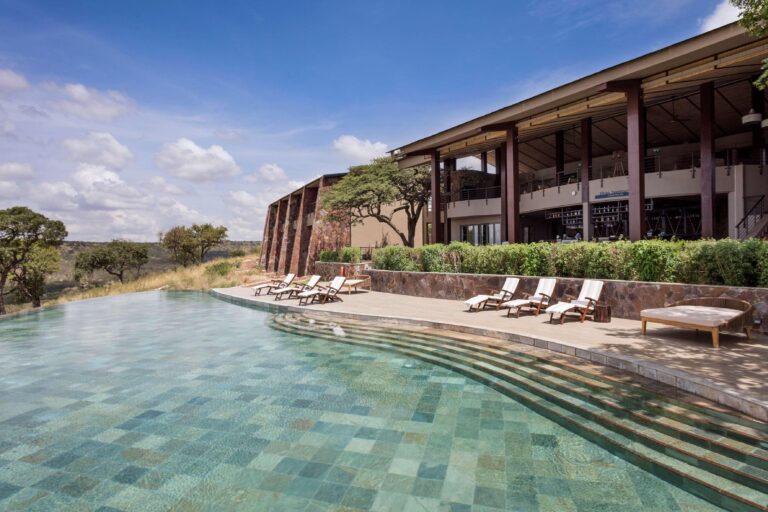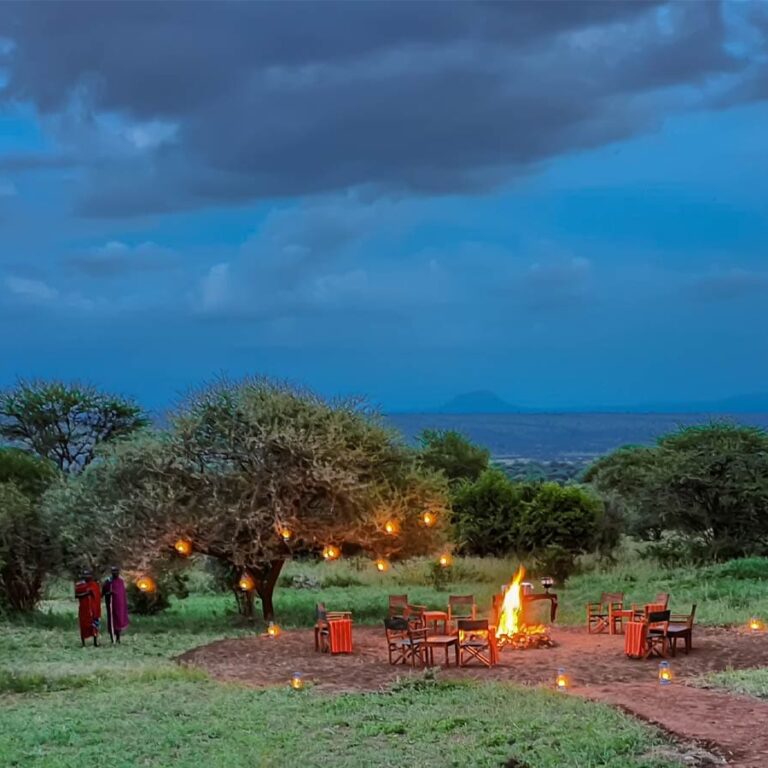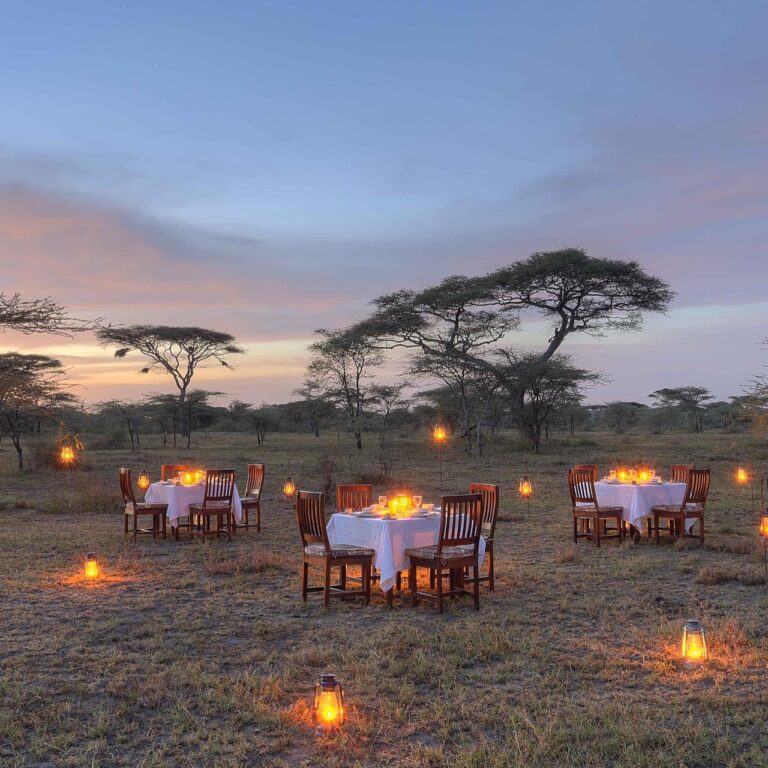Mount Kilimanjaro, Africa’s highest peak at 5,895 meters (19,341 feet), has long captivated travelers with its breathtaking scenery, diverse ecosystems, and cultural significance. More than just a physical challenge, climbing this majestic mountain has proven to be a transformative experience for countless adventurers. Those who venture up its slopes often leave with a fresh perspective on life, a deeper connection to nature, and invaluable lessons about resilience and camaraderie. Mount Kilimanjaro, Africa’s highest peak, is a majestic sentinel that has captured the imagination of adventurers for centuries. While Climbing Mount Kilimanjaro Changed Travelers’ Perspective, many people see climbing it as a physical challenge to be conquered. Those who have stood on its snow-capped summit often come back with more than just a sense of accomplishment.
Climbing Mount Kilimanjaro changes one’s perspective by fostering presence and focus on the now, revealing the power of stepping outside one’s comfort zone, and instilling humility, gratitude, and resilience during Kilimanjaro Trails. The physical and mental challenges of the climb, coupled with the support of guides and porters, highlight the importance of perseverance, collective triumph, and the ability to overcome inner doubts, ultimately leaving climbers with a renewed vigor and a Climbing Mount Kilimanjaro Changed Travelers’ Perspective profound appreciation for the journey and the support of others. They return with a profound shift in perspective—a new way of seeing the world and their place in it. The journey up Kilimanjaro is less about reaching the top and more about the internal transformation that happens along the way. Here’s a look at how this epic climb can change a person’s life.
Redefining Your Limits
Before they even set foot on the trail, most climbers have a predefined idea of their physical and mental limits. The Kilimanjaro climb shatters these notions. The Climbing Mount Kilimanjaro Changed Travelers’ Perspective combination of high altitude, steep inclines, and long Kilimanjaro routes trekking hours pushes the body and mind to their absolute brink. You discover muscles you never knew you had and a well of endurance you didn’t think was possible. What once seemed impossible—taking another step, breathing in the thin air, or enduring the cold—becomes the new normal. This Kilimanjaro Climb journey teaches you that your perceived limitations often just self-imposed barriers. When you realize you can achieve something as monumental as climbing Kilimanjaro, you start to question what else you’ve told yourself you can’t do.
The Power of Patience (“Pole, Pole”)
One of the most valuable lessons taught on the mountain its encapsulated in a Swahili phrase you’ll hear constantly: “Pole, pole,” which means “slowly, slowly.” Rushing up Kilimanjaro is a recipe for disaster, as it can lead to altitude sickness and exhaustion. The guides emphasize a deliberate, measured pace. This Climbing Kilimanjaro lesson extends far beyond the mountain trail. In Climbing Mount Kilimanjaro Changed Travelers’ Perspective, a fast-paced world that glorifies instant gratification, the “pole, pole” philosophy is a powerful reminder to slow down, be patient, and trust the process. You learn that great things achieved not by sprinting but by taking one careful, deliberate step at a time. This patient approach can be applied to any long-term goal, from career aspirations to personal growth.
Tips: Climbing Kilimanjaro offers profound life lessons, including the power of breaking down large goals, the importance of the “pole pole” (go slowly) approach, the realization that your greatest challenges often come from within, and the necessity of a supportive team. The mountain also teaches mindfulness by focusing you on the present, encourages a deep sense of gratitude for simple things, and shows that the true journey and transformation lie in the process, not just the summit.
Appreciation for Simplicity
Life on the mountain its stripped down to its essentials. Your focus narrows to the most fundamental needs: food, water, warmth, and rest. There are no distractions—no phones, no social media, no deadlines. This Climbing Mount Kilimanjaro Changed Travelers’ Perspective, forced simplicity brings an incredible clarity. You come to appreciate the warmth of a sleeping bag, the sustenance of a hot meal, and the simple act of breathing without effort. This Climbing Mount Kilimanjaro experience instills a deep gratitude for the basic comforts we often take for granted. After returning to the complexities of modern life. Climbers find themselves reevaluating their priorities and focusing on what truly matters rather than getting caught up in the trivialities of daily life. You will have 3 words to describe your feelings when you reach the peak of Mount Kilimanjaro: thrilling, exhilarating, and emotional.
Embracing the Journey, Not Just the Destination
While the summit is the ultimate goal, a successful Kilimanjaro climb its defined by the entire journey. The trek through lush rainforests, across vast alpine deserts, and over rocky terrain is an incredible experience in itself. The guides, porters, and fellow climbers become your temporary family. Climbing Mount Kilimanjaro Changed Travelers’ Perspective you will share stories, fears, and triumphs. If you focus solely on reaching the top, you miss the breathtaking sunrises, the unique flora and fauna, and the bonds you forge along the way. Kilimanjaro teaches you to find joy in the process and to understand that the beauty lies not just in the end result, but in every single step you take to get there.
For centuries, Kilimanjaro has served as a symbol of hope and inspiration for those who call Africa home. Its strong presence reminds us of the heights that can be reached through perseverance and unity. For these indigenous tribes, the mountain holds deep cultural and spiritual significance. For the Chagga people, the snow and ice on the peak of Mount Kilimanjaro are considered sacred. Because of this, they have strict rules and customs for climbing the mountain.
Humility and Insignificance
Standing at 19,341 feet, with the world stretched out below you, gives you a profound sense of perspective. You’re just a speck on a massive, ancient mountain. The sheer scale and power of the landscape dwarf any personal ego or worldly concerns. This experience i incredibly humbling. You realize that nature is in charge, and your control its limited. This feeling of insignificance, however, is not dispiriting. Instead, it’s liberating. It helps you let go of the small worries and stresses that consume daily life and fosters a deep respect for the power and majesty of the natural world. Because, simply put, Kilimanjaro is one of the most beautiful spots on the planet. The scenery ranges from the sublime to the spectacular, with skies clear and landscape rugged. It’s also a very unearthly place, at times. But it’s also always fascinating, and always beautiful.
The Importance of Teamwork and Support
Climbing Kilimanjaro its not a solo endeavor. It’s a collective effort that relies on the strength and dedication of a team. The local guides and porters are the lifeblood of the expedition, carrying gear, preparing meals, and ensuring your safety with an unwavering spirit. Your fellow climbers become a crucial support system. You encourage each other when exhaustion sets in, share a laugh to lighten the mood, and offer a hand on a difficult section of the trail. This experience highlights the immense power of human connection and the fact that no great feat ever accomplished alone. You learn to trust others and to understand that true strength often comes from leaning on a community.
Climbing helps people try new things and gain confidence. Mountain climbers need each other for support and safety, which requires cooperation and friendship. Collaboration and fellowship can be fostered when climbers work together to accomplish a goal. Both personal and professional bonds can benefit from teamwork. Kilimanjaro is considered a natural wonder as it’s no longer only a mountain; it’s a whole ecosystem in itself. It is Africa’s tallest mountain, standing tall in Tanzania. What makes it extra precise is its snow-capped pinnacle, thats a top-notch sight in Africa.
Mind Over Matter
As you ascend higher, the physical toll becomes immense, and the air becomes thin. At this point, the climb shifts from a physical challenge to a mental one. You are often battling with a voice in your head telling you to turn back. Kilimanjaro teaches you to silence that voice. You learn that your mind its far more powerful than you ever thought. By focusing on the present moment, on your breath, and on the next step, you can overcome incredible discomfort. This mental fortitude its a skill that translates directly into overcoming obstacles in life, whether they are professional challenges or personal struggles.
How many people climb Kilimanjaro every day? Between 30,000 to 50,000 people climb Kilimanjaro annually, most of whom visit during the dry season. These dry seasons total 7 out of 12 months. If we divide the number of visitors by 7 months, we get an average of 4,285 to 7,124 people per month. Taken further, that’s 142 to 237 people starting a climb every day.
Gratitude for the Essentials
When you are pushing your body to its limits, the small acts of kindness and comfort become monumental. The porters who set up your tent after a long day of hiking, the warm cup of tea waiting for you in the morning, and the encouraging smile from a guide—these moments become cherished memories. This experience forces you to appreciate the value of simple things and the kindness of others. It replaces a sense of entitlement with a profound feeling of gratitude for everything you have, however small it may seem. If your bucket list of mountains to climb includes dominating the world’s top peaks, then Kilimanjaro must be one of your considerations. As one of the Seven Summits, Kilimanjaro is the most accessible peak for hikers.
Environmental Awareness
The journey up Kilimanjaro takes you through a series of distinct ecological zones, from rainforests to barren alpine deserts, showcasing the fragility and beauty of different ecosystems. Seeing these diverse environments firsthand instills a deep sense of responsibility to protect them. Climbers often return with a renewed commitment to environmental conservation, understanding that these pristine landscapes, precious and must be preserved for future generations. Not only will you build incredible strength and endurance from climbing mountains (consistently), but you’ll also find that your diet becomes better. You’re also going to find that unhealthy food will not fuel you properly.
A Renewed Sense of Self-Confidence
The final push to the summit is a grueling, dark, and cold affair. Yet, as the sun rises and you stand on Uhuru Peak, you feel an exhilaration that is hard to describe. It is a feeling of triumph and unwavering self-confidence. You have overcome one of the world’s most formidable challenges. This Climbing Kilimanjaro changes your viewpoint forever accomplishment serves as a permanent reminder that you are capable of far more than you ever imagined. It’s a confidence that doesn’t fade with time but becomes a bedrock for approaching future challenges with courage and determination.
How does Mount Kilimanjaro impact people?
Mount Kilimanjaro is the highest mountain in Africa and the main source of water for the 40km2 wide area of the Pangani river basin in Tanzania. Known for its incredible biodiversity, Kilimanjaro is also an important source of food, fuel, and building material, as well as a place of great significance for locals. The Maasai people also have a strong connection to the mountain. They believe that their god, Enkai, lives on the summit of Mount Kilimanjaro. So for them, climbing the mountain is a spiritual journey and is reserved for special occasions such as prayer ceremonies or rituals.
Can climbing a mountain change your life?
Climbing a mountain can be a life-changing experience. It pushes your physical and mental limits, teaching resilience, patience, and self-discovery. Away from daily distractions, you gain clarity, confidence, and a deeper appreciation for nature and life’s simple moments. The journey often inspires lasting personal growth and a fresh perspective on what truly matters. Reaching the summit of Uhuru Peak was a collective triumph, the result of every person who had carried, guided, and cheered us on. Kilimanjaro teaches you to see beyond yourself and recognize that every step you take is supported by many unseen hands.
Can a normal person climb Kilimanjaro?
Yes, the average active person can climb Kilimanjaro, but you need to be prepared. The more you train physically, the more you prepare mentally, the more you stay positive, and the more you make your ascent a fun project rather than a chore, the greater your chances of making the summit. Most of Kilimanjaro’s trails are relatively safe in terms of exposure. However, there is one notable section that height-sensitive climbers often ask about: the Barranco Wall. Found on the 7 Days Machame Route and the Lemosho Route, the Barranco Wall is a short, non-technical rock scramble. Mount Kilimanjaro is not just Africa’s highest peak and the world’s tallest free-standing mountain. It is also one of the Seven Summits of the world. Rising at 5,895 meters above sea level, Mount Kilimanjaro features a snow-capped peak all year round.
- Is Climbing Kilimanjaro Worth It? A Complete Guide
- 10 Reasons to Book a Hot Air Balloon Safari in Serengeti
- Top 7 Ways Climbing Kilimanjaro Enriches Your Life
- What to expect on a Hot Air Balloon Safari in Tanzania
- Does Mount Kilimanjaro have any cultural significance?
- 10 Tips For A Successful Climb On Mount Kilimanjaro
- Do I Need Trekking Poles to Climb Kilimanjaro?
Kilimanjaro Tours and Activities 2025/2026
For Kilimanjaro tours and activities in 2025/2026, you can choose from various routes, with popular options including the Lemosho, Machame, and Marangu routes, and longer paths like the Northern Circuit. Activities focus on climbing the mountain via these routes, with durations typically ranging from 5 to 10 days, though longer treks are recommended for better altitude acclimatization and higher success rates. You can find Kilimanjaro tours from budget-friendly treks to luxury private expeditions from various operators like Foot Slopes Tours and Safaris. Experience the ultimate Kilimanjaro Tours and Activities prices, cost, reviews, photos, map, trips, vacation, packages, holiday all-inclusive.
Final thought:
Climbing Kilimanjaro a pilgrimage that goes beyond the physical. It’s an introspective journey that reshapes your perspective and leaves an indelible mark on your soul. It’s a climb that reminds you to be patient, to appreciate simplicity, to rely on others, and to never underestimate your own strength. It changes you, not by giving you a new view of the world from the top, but by giving you a new view of yourself. In essence, climbing Mount Kilimanjaro is not merely about conquering a mountain; it’s about discovering one’s limits, fostering resilience, and gaining a deeper appreciation for life and its intricate challenges. The mountain fundamentally alters perspectives, equipping travelers with a renewed sense of purpose and a drive to live life to its fullest. In a world that often prioritizes the mundane, Kilimanjaro stands as a reminder of the extraordinary potential within each of us.








